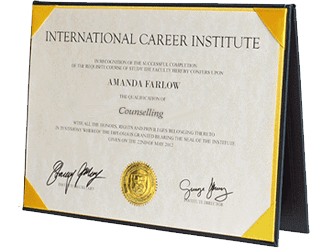If you are passionate about conducting research, investigative work, and writing, you could be the perfect candidate for a career in journalism. Whether you want to write for print, radio, television, or online sources, our online journalism course could fast-track your journey in the media sector and provide you with the knowledge and skills you need to succeed.
The programme has been designed and created alongside experienced journalists, so you can rest assured that the information will be highly engaging, informative, and aligned with industry standards.
Interested to know more about our media studies and journalism training? Explore our course breakdown below or enrol now to get started.
-
Course Outline
When you enrol on our journalism courses online, you will complete the following modules of study and obtain the following journalism skills:
1 The World of Journalism - The history of media and the free press
- The role of new technology
- The role of the journalist today
2 New Stories - How to write a news story
- The importance of the intro
- How to find the right angle
- Creative writing
3 Interviewing - Developing interviewing techniques
- How to ask the right questions
- Preventing the pitfalls
4 Law - What is defamation?
- What is copyright?
- The legal pitfalls for today’s journalists
5 TV and Radio - The role of radio, TV and the internet
- How the radio/TV newsroom work
- Writing your news bulletin
6 Writing Skills - Improving your writing
- What is house style?
- How to file copy
7 Features and Specialisms - How to plan and write a feature
- How to write a press release
- The role of the photo-journalist
8 Courts - The structure of the courts
- How to write a safe court story
- What are inquests?
9 Public Administration - The importance of Local and Central Govt
- What is the role of Europe?
- Covering council meetings
10 Where To Go From Here - CV writing
- How does freelance work?
-
How Will You Benefit?
There are many benefits associated with enrolling on our online journalism courses. For example, you will:
- Advance your career as a journalist
- Study a course that has been created in conjunction with professional and experienced journalists
- Avoid commuting to classes and complete the course online from wherever you choose
- Study at your own pace to finish the course
- Have access to a personal tutor who can assist you and answer your questions
- Get a special 10% discount when you pay for the course upfront. Weekly payment plans are also available if you wish to spread the cost interest-free
Discover the benefits for yourself by signing up for our journalism courses today.
-
Career Prospects
 Journalism can be a stimulating career path, mainly because you don’t know what to work on from one month to the next. You could go from writing about politics to international affairs or entertainment to fashion (depending on which sector you specialise in).
Journalism can be a stimulating career path, mainly because you don’t know what to work on from one month to the next. You could go from writing about politics to international affairs or entertainment to fashion (depending on which sector you specialise in).The role of a journalist is both necessary and vital. It’s your responsibility to deliver critical and significant news to the local and national community. To do so, you will likely work alongside editors, designers, press and media officers, and other journalists, making many industry connections to help develop your career even further.
Career opportunities for journalists
With your journalism diploma, you could go on to work in some of the exciting sectors below:
- Newspapers (local, national and online)
- Magazines (consumer or business)
- Television and broadcasting
- Radio
- Publishing
- Press and public relations (PR)
- Advertising
- Book publishers
- Independent freelance journalist
- Digital Media
You also have the thrilling opportunity to freelance, write for your news site or contract for various media organisations and publications. The beauty of this is you can pick and choose the work you want, declining opportunities that don’t seem suitable for you but accepting the ones that catch your eye.
Some of your day-to-day tasks as a journalist might include:
- Researching and investigating details for a story
- Attending or conducting interviews
- Writing engaging articles that present your findings in an exciting way
- Note-taking, minute-writing or using recording equipment
- Brainstorming new ideas for a potential story
- Following up leads
- Proofreading other articles before they are published
- Being present at and reporting on important events
- Conducting investigative journalism
People rely on journalism 24/7; the media industry is as diverse and exciting as ever. Work ranges from hands-on print and broadcast media to online publications in the social media age.
-
Course Levels Explained
Diploma
Our journalism course results in a Diploma, a qualification that recognises graduates’ capacity for initiative and judgement across a broad range of technical and management functions. Diploma holders typically have personal responsibility and autonomy (semi-independence) in performing technical operations or organizing others in the workplace. The Diploma program is an excellent alternative to an undergraduate journalism degree requiring a 3-year full-time study investment or postgraduate studies.
-
Prerequisites
There are no education entry requirements (A level) for entry into our journalism course. You should have a good understanding of the English language with strong communication skills. ICI online courses are suitable for beginners. -
Course Length
Students typically complete our Diploma in Journalism course within 24 weeks. The course can be completed via full-time or part-time self-paced studies.
With no deadlines to adhere to and the ability to work at your own pace, this period is flexible, meaning you’re in control when you study journalism. Activities and assignments can be completed whenever they’re ready, reducing the stress you might feel when you have to finish a piece of work on time.
You can finish the course quickly if you wish, but you can also take up to three years to complete it.
-
Study Mode: Online Learning
Thanks to distance learning, our journalism course can be completed entirely online. This is also sometimes known as correspondence learning, allowing you to work at your chosen pace and adhere to your timetable. It means you can fit the course around other commitments, mainly if you’re working while trying to develop other skills in your spare time.
The time spent travelling to and from classes can instead be used to complete the course, so you could finish it faster than another course that requires your physical presence. If you have questions while undertaking the course, your journalism tutor will happily help and guide you through the problem.
-
Recognition & Accreditation

This course is recognised and accredited by the International Association of Private Career Colleges (IAPCC).As with all of our courses, the journalism course is designed to bring a practical approach to teaching, and not just a theoretical one. Thanks to the help of industry professionals, the course is rewarding and will help you fast track your career as a journalist.
-
Already in the Profession or Industry?
Are you already a journalist? Our course can help you further your professional development and advance your career. By widening your current knowledge and providing you with the opportunity to learn something new, you could see results reflected in your job performance, potentially helping you gain a promotion.
Plus, the course fees can be tax deducted if the programme is sufficiently connected to your current work activities.
-
What Do I Get?
The course fee includes all the materials you need to complete our online journalism course. Once you enrol, you will receive:
- All required study materials and course notes
- Assignment projects with constructive tutor feedback
- A tutor who will answer all of your course and career questions and provide assessment guidance
Upon successful completion of the course, you will receive:

- A graduation certificate officially recognizing your successful completion of studies and qualifications as a journalist
- Transcripts indicating the units completed
- A letter of recommendation and validation for current and future employers
- Post-nominal letters placed after your name which indicate that you hold the relevant qualification (for example: John Smith, DipJour)
- Job search assistance: discover more about our Graduate Career Services Programme
-
Cut Off Date
Friday, 6th March 2026 is the next enrolment cut off date. Places are limited, in demand and entry into the course is on a first come first served basis.
Your enrolment is processed and acknowledged within 24 hours of the Institute receiving your application. You can expect to receive your course within days of enrolling. When you start your ICI course it’s at your own pace and you determine when you finish.
Don’t miss out. Enrol today!




